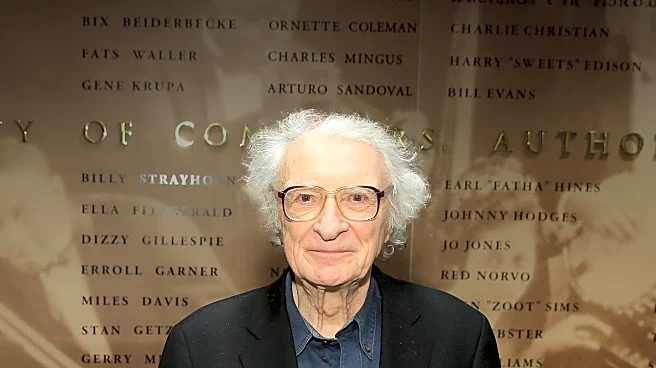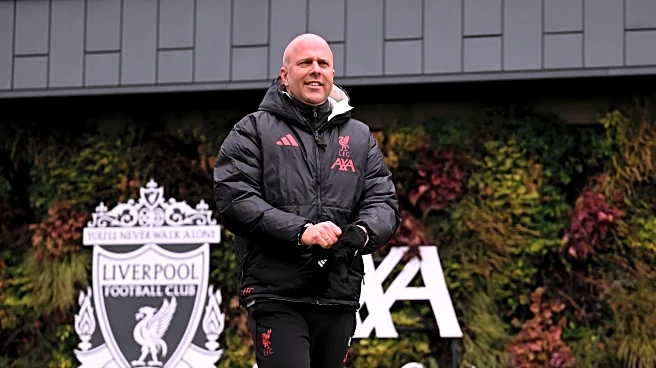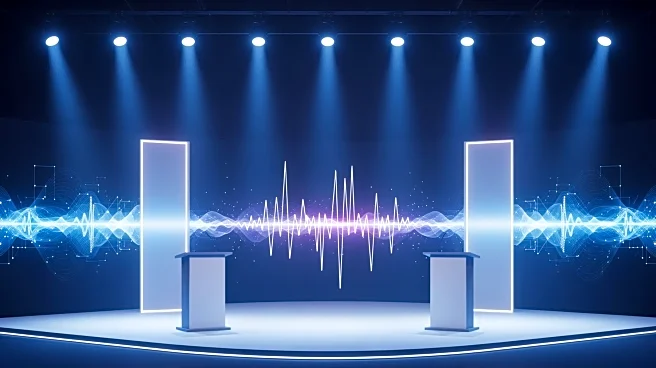What's Happening?
Irving Locker, a World War II veteran who landed at Utah Beach on D-Day, has become a published songwriter at the age of 101. His song, 'If Freedom Was Free,' was released by Big Machine Label Group and CreatiVets,
a nonprofit organization that helps veterans cope with trauma through artistic expression. The song, featuring Texas singer-songwriter Bart Crow and duo Johnny and Heidi Bulford, conveys Locker's message that freedom is not free, a sentiment he has shared in lectures from classrooms to the White House. Locker, who resides in The Villages, Florida, expressed his thrill at the opportunity to write a song, emphasizing the importance of music in his life.
Why It's Important?
Locker’s achievement highlights the therapeutic power of music and the arts in addressing veteran trauma. By collaborating with CreatiVets, Locker not only shares his personal experiences but also raises awareness about the sacrifices made by veterans. This initiative underscores the importance of supporting veterans through creative outlets, offering them a platform to express their stories and emotions. The song serves as a reminder of the cost of freedom and the need to honor those who have fought for it, potentially inspiring public appreciation and support for veteran-focused programs.
What's Next?
Locker’s song may inspire further collaborations between veterans and artists, promoting the use of music as a healing tool. CreatiVets and similar organizations might expand their programs, encouraging more veterans to share their stories through art. The song's release could also lead to increased public interest in veteran issues, prompting discussions on how society can better support those who have served. As Locker continues to share his message, there may be opportunities for him to engage with wider audiences, potentially influencing public policy on veteran care.
Beyond the Headlines
Locker’s story sheds light on the broader cultural impact of veterans sharing their experiences through art. It raises ethical considerations about how society values and supports its veterans, questioning whether enough is done to address their needs post-service. The collaboration between veterans and artists could lead to long-term shifts in how trauma is perceived and treated, fostering a culture that prioritizes mental health and creative expression as vital components of healing.









